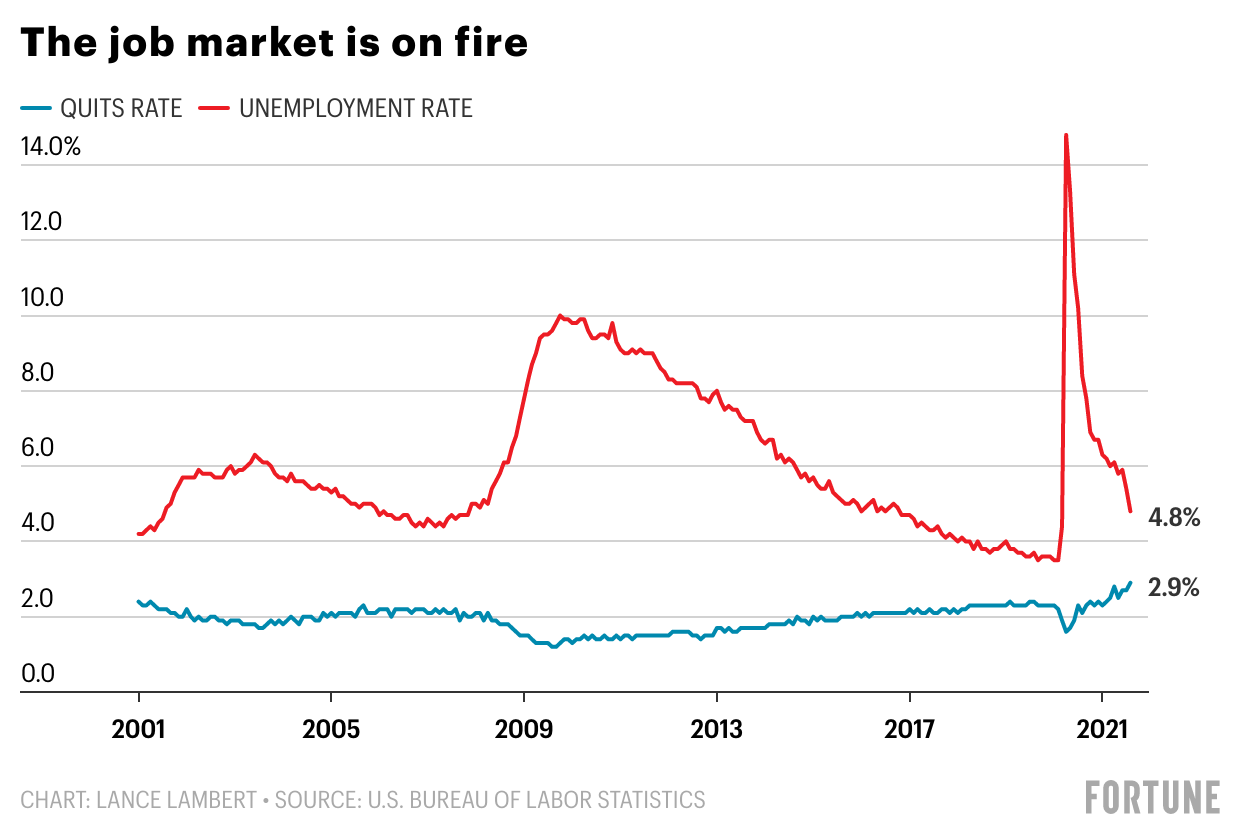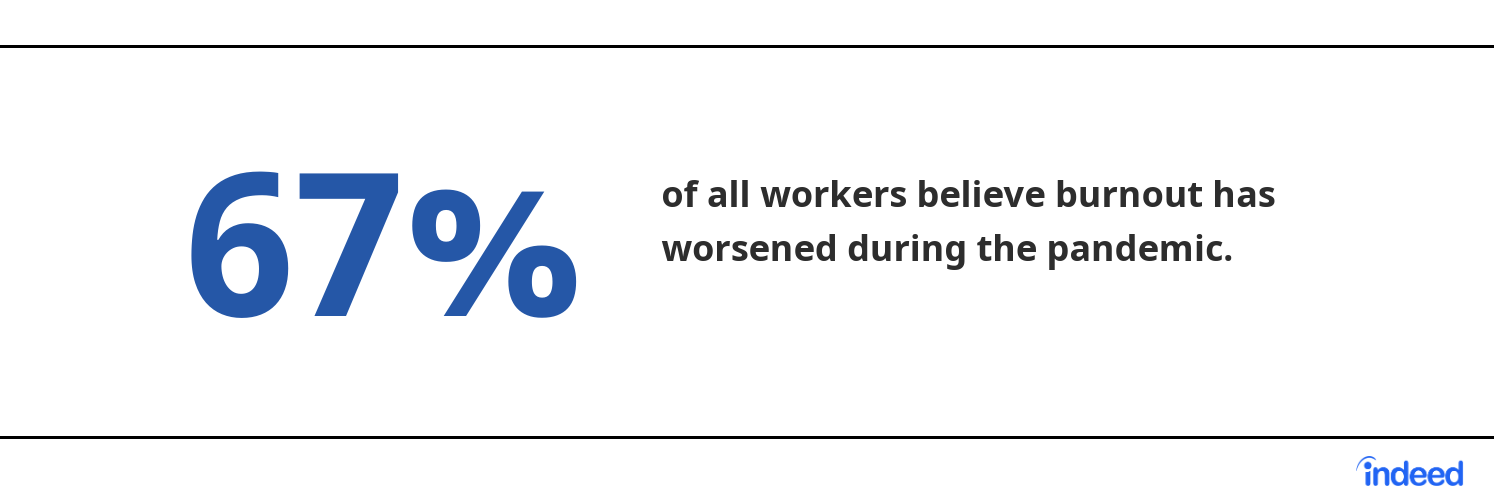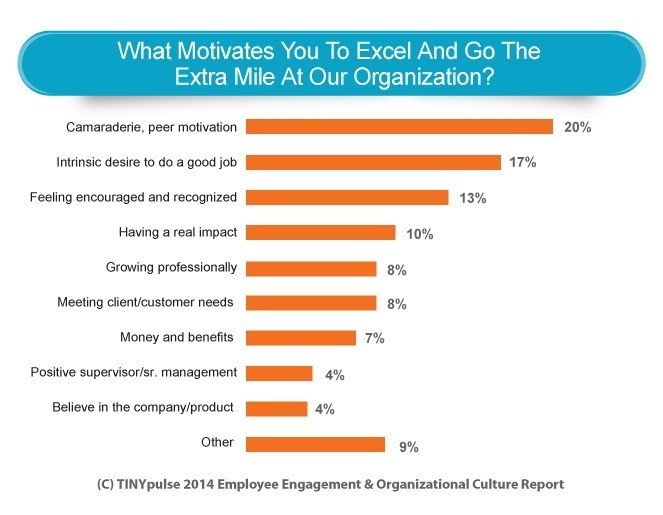
Many people in the US and other countries have either considered quitting their jobs, or they have already done so. According to the U.S. Bureau of Labor Statistics, 4 million Americans quit their jobs in July 2021. And for the past few months, resignations have remained abnormally high.
Known as the great resignation, this movement poses significant threats to businesses. Why? Because when talented and valuable employees quit, businesses suffer from lost expertise and face the risk, inconvenience, and expense of having to replace them.
There are several ways businesses can avoid the perils of the great resignation. The first step is understanding why people are quitting in the first place. We'll identify the biggest risks and offer tips on how to address each one.
What is the Great Resignation?
The Great Resignation was first coined by Professor Anthony Klotz of Texas A&M University. It refers to the large numbers of people leaving their jobs after the COVID pandemic. As often happens with large life events, people step back and reevaluate their lives and careers—and people are leaving their jobs in record numbers. Suddenly, companies are finding that they need to rehire—and fast.

Image Source
6 perils of the Great Resignation for businesses
When talented and valuable employees quit en masse, businesses suffer significant setbacks.
Brain drain
Talented employees are the lifeblood of an organization. When they leave, your business may suffer from a brain drain as valuable knowledge and experience walk out the door. This can be especially harmful if your company is in the early growth stages, or if you're competing in a crowded industry.Lower productivity
When talented employees quit, it can lead to a decline in productivity, as the remaining employees must carry the extra workload. This impacts their ability to complete their normal tasks, and if they do, there may be a dip in the quality of their work. This can demotivate teams and become a challenge for business leaders to manage. As a result, your business may experience low productivity and more people leaving due to excessive stress. In Indeed's Employee Burnout Report, the career site surveyed workers and found that more than half (52%) are feeling burned out.

Image Source
Lost customers and market share
The loss of talented employees can also lead to a decline in market share and lost customers; due to these employees often being key players in developing and maintaining customer relationships. When valuable employees leave, your business may lose its competitive edge and struggle to recapture lost market share.Reputational damage
Employees are often the public faces of your company. When they resign, it may send the message that your company is not a desirable place to work. As a result, you may lose potential customers, employees, and prospective hires.Increased costs
Replacing employees can be expensive and time-consuming. Not only do you have to find qualified candidates but there are also the costs of onboarding and training. This can drain your resources.Losing talent to competitors
When highly-skilled employees quit, they often go to competitors. Reasons include looking for a better work-life balance, job growth, and greater recognition. Losing key talent to your competitors gives them a possible strategic advantage.
5 reasons the masses are resigning—and what to do about it
A lack of flexibility and poor work-life balance
Employees may be quitting because they feel like they don't have any flexibility, working long hours without having time off. You can provide extra paid time off to let employees know they are valued and recognized. They may also be quitting because they don't have a good work-life balance. Try offering employees flexible working arrangements (e.g., telecommuting or job sharing).
Don't just talk the talk: invest in tools that make remote and hybrid work easier—like videoconferencing, time tracking apps, and cloud-based project management software.
Wage stagnation
One reason employees may be feeling unappreciated is wage stagnation. This is when wages fail to keep up with inflation, leaving employees feeling like they're not getting a fair deal. The fix? Keep up with inflation, and offer additional incentives to sweeten their compensation package.
Lack of challenge and growth opportunities
Are your employees being challenged in their job and responsibilities in ways that promote growth opportunities? Periodically evaluate (e.g., performance reviews) employees to determine how far they have grown in the company and how their responsibilities have evolved. Businesses leaders should be open to fostering employee growth as it contributes to your company's long-term success. Also, consider implementing mentoring programs and training courses to maximize your efforts.

Growth in the role can be a big motivator (Image Source).
Lack of care
Plenty of businesses showed their true colors during the pandemic, asking employees to work while sick and making it difficult for them to work from home. On the other hand, many businesses started to realize that employee well-being was becoming a top priority in order for companies to remain productive, profitable, and healthy.
That said, show employees that you care. Make sure you are providing them benefits such as health insurance, dental insurance, and 401k plans. Consider implementing well-being programs so employees are at their best.Unprepared for remote work
Many workflows can be adapted to remote work, and companies who can offer this arrangement should leverage the benefits. Remote work gives employees the flexibility to balance their work and personal lives. It can also improve employee productivity.
Conclusion
Don't let your business fall victim to the great resignation. Follow the above tips to keep employees happy and productive—and a valued part of your company.
If you've suffered a recent spate of employees leaving, speed up the hiring process with tools that help you find the best candidates fast.
Pre-interview testing tools can help businesses quickly and easily assess the qualifications of potential employees. This reduces the time and resources spent on interviewing unqualified candidates.
With HR Avatar, you can run a number of different pre-interview tests—including personality tests, skill tests, and aptitude tests—perform reference checks, hold video interviews, and more. To find out more, request a free demo today.
If you found this article interesting, please share it on social media.
Author Bio

Dean Mathews is the founder and CEO of OnTheClock, an employee time tracking app that helps over 15,000 companies all around the world track time.
Dean has over 20 years of experience designing and developing business apps. He views software development as a form of art. If the artist creates a masterpiece, many people's lives are touched and changed for the better.
When he is not perfecting time tracking, Dean enjoys expanding his faith, spending time with family and friends, and finding ways to make the world just a little better.
